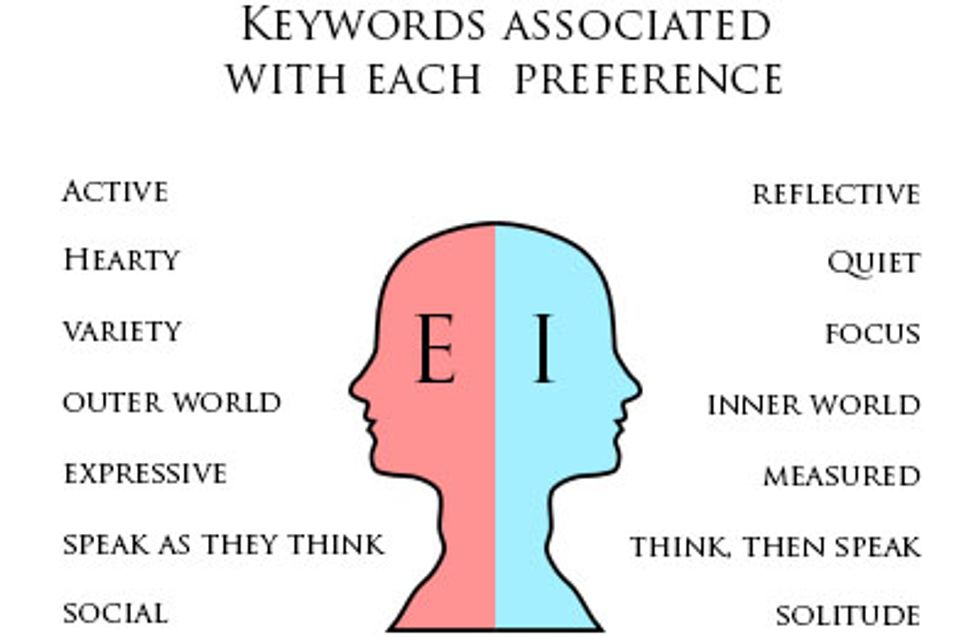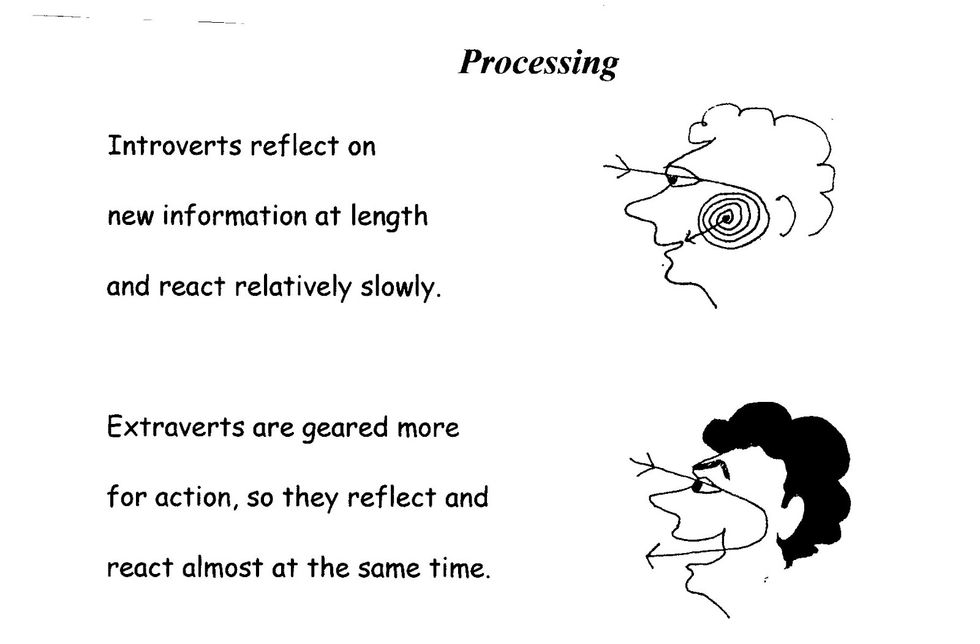A couple of months ago, I stumbled on a Ted Talk by Susan Cain from 2012. It was titled “The Power of Introverts.” Cain explained that people who tend to focus on themselves internally and value solitude are more equipped to be better leaders than those who don’t. She told stories about her own introverted self, how she would rather read a good book with her family than be at a loud party, how she valued intimate conversations with good friends than small talk in a crowd of strangers. She defined introversion as “more about how do you respond to stimulation, including social stimulation. So extroverts really crave large amounts of stimulation, whereas introverts feel at their most alive and their most switched on and their most capable when they are in quieter, more low-key environments.”
I myself am a proud introvert. I value my alone time just as much, if not a little bit more, than my time with friends or family. I often overthink things and analyze situations way too much. However, being a college student I am always surrounded by people and find myself in situations where my introversion is seen as a negative trait. I have been passed over for countless leadership positions and opportunities, being seen as unable to handle the position, uninterested, indifferent, or possessing no leadership qualities due to my introversion.
Today, college life is all about making friends, going out, and learning about the person you want to be. In college, people who tend to prefer a night in with a few friends are automatically seen as outliers. So to combat this assumption and to prove that introverts make the best leaders, I have listed below the top 6 reasons introverts make better leaders than extroverts.
They are willing to work hard, but prefer not to be in the spot light
Hard work and dedication are what truly make a leader great. Introverts do not shy away from hard work and tend to embrace challenges. They are able to deeply analyze and assess situations more so than an extrovert can. When given a task, introverts excel and exceed expectations, but prefer not to small talk or bullshit afterwards. They sometimes prefer to be behind the scenes and feel satisfaction that their own goals and work is seen as successful rather than received credit directly. They are naturally humble and willing to let others receive praise, recognition, and appreciation.
They are more open to new ideas from people and are more willing to give people creative freedom
Introverts love to hear new perspectives and ideas. They are open to new ways of how to approach a situation and possibilities that they ever thought of. With the introvert style being more laid back, they allow for others to run with their own ideas. Introverts are good at giving up control and delegating power. Extroverts, unknowingly, can get too excited about a new idea that they put their own stamp on it and forget to truly listen to what is being proposed. Introverts are open to taking a step back and allowing someone else to lead. They are more open to new ideas and different opinions.
They are naturally more detail-oriented, creative, and critical about their work
Apart from not shying away from hard work and embracing challenges, introverts have a different thinking style than extroverts. Extroverts are more likely to go with the first proposed idea rather than weigh pros and cons of each option before coming to a decision. Introverts are more inclined to be more concerned about the smaller details which then make up the larger picture. They make careful deliberations over all decisions reflexively. They loved to be well informed about a topic before giving ideas or opinions. They ask questions and are naturally curious. Alongside the critical trait, creativity is also a trait introverts have. Self-reflection and solitude are the cornerstones for creativity. Just looking at famous artists and musicians, lives of solitude and introversion are abundant. In Cain’s Ted Talk, she give the example of seekers of three of the biggest major religions living in solitude before re-entering society. Jesus, Mohammad, and Buddha all left society to live in solitude, had profound revelations, which they then brought back to their respective communities. Creativity comes from within someone’s mind. Activities like creative writing and art are singular acts that force the mind to work and think independently. Introverts also tend to have careers that involve more critical detailed work, usually involving business, law, and art.
Introverts can be funny and outgoing just as much as extroverts
Just because someone enjoys working by themselves or prefers a night in over a night out, does not mean they are shy or don’t like spending time with people. Human are naturally social creatures. We need human interaction and love in order to be healthy and secure in ourselves. An introvert can have an outgoing personality just as much as an extrovert can by shy. Introversion or extroversion have nothing to do with social skills or sense of humor. It is about the environment you are in when you are most focused and think the best. It’s kind of like how some people prefer to listen or music when they study or prefer silence. Studying in the silent room of the library doesn’t equate to me not having friends or hating people.
They are more likely to admit they are wrong
With self-reflection being at the core of introversion, it’s hard for introverts to not see how they may be wrong. When you spend so much time analyzing your actions and its outcomes, it’s hard to overlook how their action was incorrect. Having the ability to admit you were wrong is a trait needed in leaders today. We have known this for hundreds of years. One of the most profound thinkers of human history, Socrates, was considered wisest because he admitted that he did not know everything. Unlike his fellow thinkers, he saw the impossibility to be correct about everything; the only he knew for sure was that it is impossible to fully know everything. The trait allows for the leader to be accountable for their actions, concede that they made a mistake, and then, most importantly, move forward.
Sometimes silence is louder than words
With all of these traits combined, one thing remains true. Introverts have the ability to think before they speak. With their mind working at a thousand miles per minute, deliberating over what the next course of action is, introverts more careful about what they put out into this world. Taking a minute to think of what to say next is sometimes powerful. It’s like that middle school teacher who would just stare at their loud and disruptive class. Automatically, we all felt the pressure to shut our mouths and pay attention. We felt guilty and sorry for not listening to instructions, more so than if they shouted at us to be quiet. Introverts utilize silence as a tool. They bask in it, think best in it, and lead with it.
A leader must be decisive in their wording and actions when leading a group of people. They must be excellent communicators who can explain their actions and motivate their followers. Don’t get me wrong, extroverts can definitely make good leaders. They are people who we are naturally comfortable around. They expel confidence and are the figure head for taking action. We gravitate to them because it seems like they know what they’re doing. However, introverts are naturally equipped to handle leadership roles with skills they already have. So I ask you, next time you vote on who gets a leadership position, who will represent your organization, or who will make the best leader, don’t forget the introvert. They might just surprise you.























